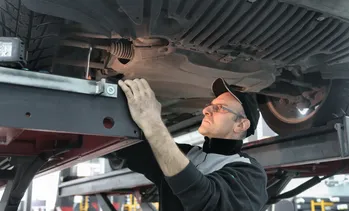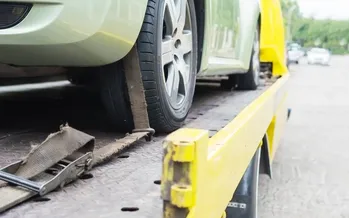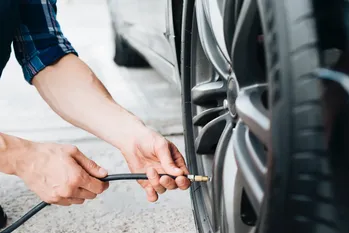Finding a reliable and trustworthy mechanic can be a daunting task, especially if you're not familiar with cars or have had bad experiences in the past. However, by following these simple steps, you can increase your chances of finding a good mechanic who will fix your car efficiently and at a fair price.
Ask for Recommendations
The best way to find a reputable mechanic is by asking for recommendations from people you trust. This could be friends, family members, coworkers or neighbors who own the same make and model of car as yours. They can provide valuable insights about their experiences with local mechanics they've dealt with in the past.
Research Online
You can also look up potential mechanics on review sites like Yelp, Angie's List, and Google My Business. Check out what other customers have said about them to gauge their level of professionalism, quality of work, and pricing. Make sure to read both positive and negative reviews as this will give you a well-rounded perspective.
Check Credentials
Ensure that the mechanic is licensed and certified by relevant industry organizations such as the National Institute for Automotive Service Excellence (ASE). This shows that they have undergone rigorous training and are knowledgeable about your car's make and model. You can also check if they offer any warranties on their work to ensure that you're getting a quality service.
Get Multiple Quotes
Before committing to a mechanic, ask for quotes from at least three different places. This will give you an idea of the average cost of repairs and help you avoid overpaying. Be wary of mechanics who provide unusually low or high quotes as this could be a red flag.
Ask Questions
When meeting with potential mechanics, don't hesitate to ask questions about their experience working on your car model, the type of equipment they use, and how long it will take to complete the repairs. This will help you gauge their expertise and level of professionalism.
Check for Transparency
A good mechanic should be upfront about the repairs required, their costs, and the time it will take to complete them. They should also provide you with a detailed estimate of all the work that needs to be done, as well as any additional charges that may arise. Beware of mechanics who make vague or overly generic estimates, as this could indicate a lack of transparency or expertise.
Ask About Their Training and Experience
When meeting with potential mechanics, ask about their training and experience working on your car model. They should be able to provide you with detailed information about the specific repairs required for your vehicle and how they plan to tackle them. This will give you a better understanding of their expertise and help you make an informed decision.
Request a Written Estimate
Before allowing any work to be done on your car, request a written estimate from the mechanic. This should include all the repairs needed, their costs, and the expected timeline for completion. Make sure that you thoroughly review this document before signing it, as this will serve as a legal contract outlining the scope of work and associated costs.
Check Their Availability
When choosing a mechanic, consider their availability to ensure that they can accommodate your schedule. This is especially important if you have a busy work or family life and need to drop off your car during specific hours. A reliable mechanic should be able to provide you with flexible scheduling options to suit your needs.
Ask About Warranties
Before committing to any repairs, ask the mechanic about their warranty policies. They should offer some form of guarantee on the quality of their workmanship and any parts installed during the repair process. This will provide you with peace of mind knowing that your car is in good hands and will be fixed properly.
Check for Communication Skills
Good communication skills are crucial when dealing with a mechanic, as they should be able to explain technical terms and procedures clearly and concisely. They should also be willing to answer any questions you may have about the repair process and provide regular updates on its progress. Effective communication will help build trust between you and your mechanic, making the repair process less stressful and more transparent.
Request a Test Drive
After completing repairs, request a test drive of your car to ensure that everything is working properly. A reputable mechanic should be willing to provide you with a test drive to demonstrate the effectiveness of their work and address any concerns you may have. This will give you added assurance that your car is in good condition and ready for the road ahead.
Trust Your Instincts
Finally, trust your gut instincts when selecting a mechanic. If something feels off or you're not satisfied with their answers, keep looking until you find someone who makes you feel comfortable and confident in their abilities. Remember that the relationship between you and your mechanic should be based on trust and mutual respect.
FAQs about Choosing the Right Mechanic
Q: What should I look for when choosing a mechanic?
A: When selecting a mechanic, consider their experience working on your car model, training and certifications, availability, communication skills, transparency, and warranty policies. It's also a good idea to check their online reviews and ratings to gauge customer satisfaction.
Q: How can I ensure the mechanic is reputable?
A: Ask for recommendations from friends or family members who have had positive experiences with local mechanics. Check online reviews and ratings on websites like Yelp, Google My Business, and Angie's List to see what previous customers have said about their work. You should also ask the mechanic for references from past customers or ask if they have any testimonials available.
Q: What questions should I ask the mechanic before committing to repairs?
A: Before allowing any work to be done on your car, ask the mechanic about their experience working on your specific car model, training and certifications, availability, warranty policies, estimated costs, timeline for completion, and communication skills. It's also a good idea to request a written estimate detailing all repairs needed, their costs, and expected timeline for completion.
Q: How can I ensure the work is done correctly?
A: To ensure that the repairs are done correctly, ask the mechanic about their warranty policies and request a test drive of your car after completing the work to ensure everything is working properly. You should also check their online reviews and ratings to gauge customer satisfaction and ask for references from previous customers or testimonials.
Q: What should I do if I'm not satisfied with the work done by the mechanic?
A: If you're not satisfied with the work done by the mechanic, address your concerns with them directly in a calm and constructive manner. If they are unwilling to resolve the issue, consider seeking out a second opinion from another mechanic or contacting the manufacturer's warranty department if your car is still under warranty. You should also report any issues to your local consumer protection agency or Better Business Bureau.
Conclusion
In conclusion, finding a reliable and trustworthy mechanic is crucial to ensuring that your car is repaired efficiently and at a fair price. By following these steps, you'll increase your chances of finding someone who meets your needs and provides quality service. Always remember to keep an open mind, ask questions, and trust your instincts when making your decision.











